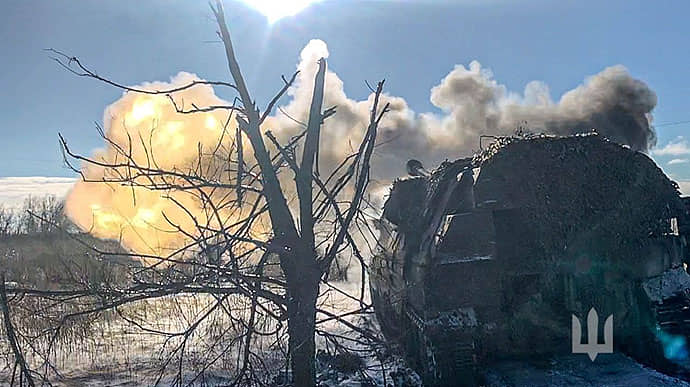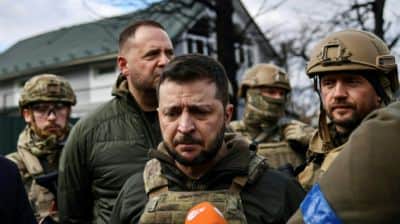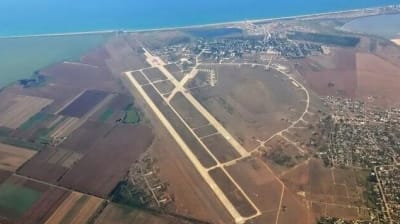Russians actively conduct airstrikes in southeast for three days in row, using chemical weapons

The Russians have been actively conducting airstrikes over the past three days in the area of responsibility of the Tavriia Operational Strategic Group, having carried out 41 airstrikes over the past day alone.
Source: Oleksandr Tarnavskyi, Commander of the Tavriia Operational Strategic Group, on Telegram; Oleksandr Shtupun, spokesman for the Joint Press Centre of the Tavriia Defence Forces, on air during the national joint 24/7 newscast
Quote from Tarnavskyi: "Russian terrorists have been actively conducting airstrikes for three days in a row. A total of 41 airstrikes were recorded yesterday. Active assault and offensive actions continue - 51 yesterday. Armoured vehicles are being used again. The average daily number of combat clashes has been around 50 for a week now. Also yesterday, the enemy carried two missile attacks and there were 715 instances of artillery shelling."
Details: He added that the situation is the most difficult on the Avdiivka and Marinka fronts, but "Ukrainian troops are inflicting significant losses on the Russian troops everywhere, especially in manpower."
In particular, Tarnavskyi said that 485 Russians were killed and 44 pieces of military equipment were destroyed in the area of responsibility of the Tavriia Operational Strategic Group over the past day: six armoured fighting vehicles, three artillery systems, 23 UAVs, as well as a Russian drone control centre.
Oleksandr Shtupun later said that the Russians are also using chemical weapons on the Tavriia front.
Quote from Shtupun: "It’s different; well, there are two or three cases on average per day [use of chemical weapons by the occupiers – ed.]. These are mostly K-51 chloropicrin grenades. They cause skin irritation and tears, and if in high concentrations, our soldiers may experience vomiting and difficulty breathing. If a person is allergic, it can lead to fatalities, but so far this has not occurred."
Details: He added that the Russians most often throw these grenades into dugouts or use them when they need to carry out rotations or during assault operations.
Shtupun noted that in such cases, gas masks and wind help Ukrainian soldiers.
Support UP or become our patron!





